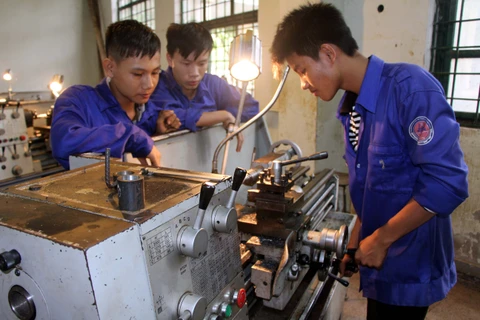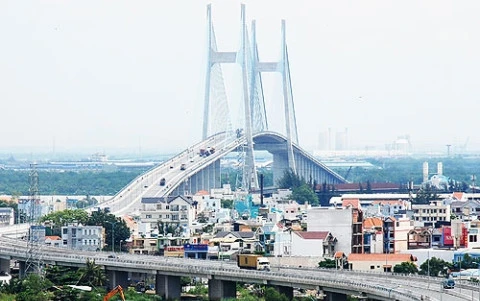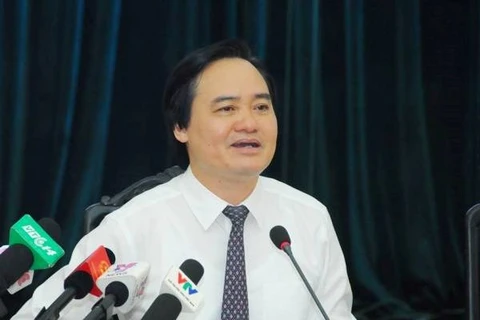Hanoi (VNA) – The Ministry of Labour, Invalids and Social Affairs (MoLISA) and the International Labour Organisation (ILO) jointly organised a workshop to seek ways to help Vietnamese workforce better prepare for changes in technology and labour requirements.
Addressing the event, MOLISA Deputy Minister Dao Hong Lan highlighted challenges facing Vietnam’s economy that are brought about by the globalisation process and the technology revolution.
He said the world has witnessed enormous leaps forward in information and communication technology, internet, automation, and the digital revolution based on knowledge and artificial intelligence, but Vietnam has lagged far left behind regional and international nations.
As of 2016, 79.4 percent of the total 54.36 million labourers in the country do not receive any training, and there is a big quality gap between the urban and rural workforces, the Deputy Minister said, adding that at the same time, vocational training has failed to meet market’s demand.
Major industries critical to economic growth such as mechanical engineering, electronics and electrical engineering suffer from serious workforce shortages, according to Lan.
Meanwhile, Chairman of the Vietnam Chamber of Commerce and Industry (VCCI) Vu Tien Loc said the economy’s major industries such as garment-textile, footwear, and electronics are still relying on low-skilled workforce.
Therefore, labour market reform must be the most important task to enhance the Vietnamese economy’s competitiveness and ensure jobs for local workers, he said.
Loc called for businesses to join human resource training, by linking up with training establishments to provide high-quality vocational training.
Deputy Chairman of the Vietnam General Confederation of Labour Mai Duc Chinh was of the opinion that Vietnam needs to enhance labour productivity and promote technology application in production.
For his part, ILO Deputy Director for Asia Pacific Countries David Lamotte suggested Vietnam strengthen coordination among policy-makers, employers and training institutions to modernise the vocational training system to better prepared for changes in workplaces.
He also called for incentives to encourage young people pursue science- technology, engineering and mathematics.-VNA
Addressing the event, MOLISA Deputy Minister Dao Hong Lan highlighted challenges facing Vietnam’s economy that are brought about by the globalisation process and the technology revolution.
He said the world has witnessed enormous leaps forward in information and communication technology, internet, automation, and the digital revolution based on knowledge and artificial intelligence, but Vietnam has lagged far left behind regional and international nations.
As of 2016, 79.4 percent of the total 54.36 million labourers in the country do not receive any training, and there is a big quality gap between the urban and rural workforces, the Deputy Minister said, adding that at the same time, vocational training has failed to meet market’s demand.
Major industries critical to economic growth such as mechanical engineering, electronics and electrical engineering suffer from serious workforce shortages, according to Lan.
Meanwhile, Chairman of the Vietnam Chamber of Commerce and Industry (VCCI) Vu Tien Loc said the economy’s major industries such as garment-textile, footwear, and electronics are still relying on low-skilled workforce.
Therefore, labour market reform must be the most important task to enhance the Vietnamese economy’s competitiveness and ensure jobs for local workers, he said.
Loc called for businesses to join human resource training, by linking up with training establishments to provide high-quality vocational training.
Deputy Chairman of the Vietnam General Confederation of Labour Mai Duc Chinh was of the opinion that Vietnam needs to enhance labour productivity and promote technology application in production.
For his part, ILO Deputy Director for Asia Pacific Countries David Lamotte suggested Vietnam strengthen coordination among policy-makers, employers and training institutions to modernise the vocational training system to better prepared for changes in workplaces.
He also called for incentives to encourage young people pursue science- technology, engineering and mathematics.-VNA
VNA
























